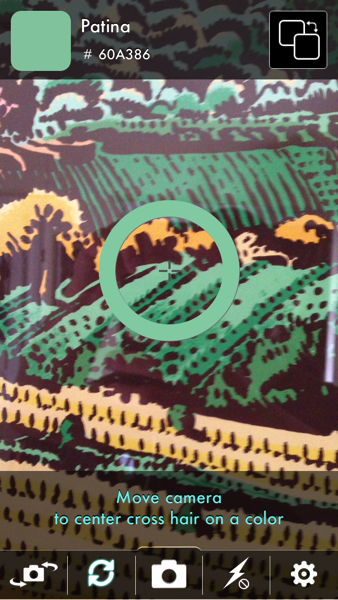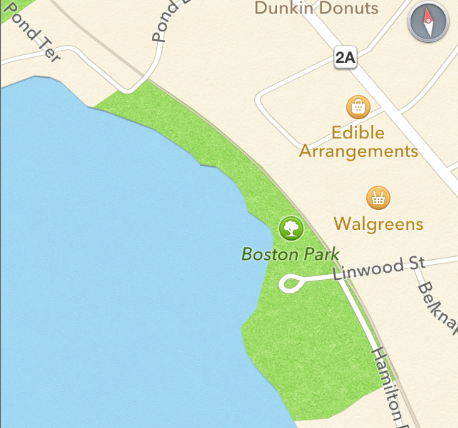Not long ago, when Apple’s WWDC conference dates were announced, a slow trickle of registrations would occur as developers consulted with spouses, bosses, and co-workers to determine, in their own sweet time, whether or not they would attend. There was never any rush, because the conference never sold out. Weeks after the announcement, developers who had not registered might even receive a personalized telephone call from Apple, urging them to make a decision. Seriously kids, this is how it used to be.
Over the past several years, demand increased such that at last, those telephone reminders from Apple were no longer necessary. By 2008, the conference sold out for the first time, in a matter of months. By 2010 it took eight days. Last year it took less than 2 hours, and this year? Less than two minutes. I was one of the lucky ones who got a ticket. A few minutes later, as I witnessed friends and colleagues upset after missing the boat? I cancelled my order. It made me uncomfortable to know we had all made the same effort to register as quickly as possible, but for arbitrary reasons I was admitted in and they were left out.
The conference has room for at most 5,000 developers. According to Apple’s job stimulus statistics, there are 275,000 or more registered iOS developers alone. Let’s assume for the sake of argument that Mac developers add only 25,000, bringing the total to 300,000. Every year, 5,000 attendees are selected from the qualified pool, meaning just 1 out of 60, or 1.5% of potential attendees will have the chance to attend.
What are the goals of WWDC, anyway? For Apple, it’s primarily a chance to educate developers and to encourage them to contribute to the growth of Apple’s platforms. By teaching developers the latest and greatest technologies, they leverage developer efforts to differentiate Apple and to make its platforms more competitive.
For developers the main goal is to get a leg up on the persistent challenge of developing great software for these platforms, even as they are constantly changing. A side-benefit is the opportunity to commune with like-minded developers who are trying to do the same. Ideally with folks who share similar visions for how software should be developed and how the end product should behave for customers.
As the sheer number of Apple developers increases, the capacity of WWDC remains the same. The goals of the conference both for Apple and for developers are increasingly unmet as the number of developers who would like to be educated, indoctrinated, and communed with far outweighs the number of developers who actually can be.
Over the years people have made plenty of flip suggestions for how Apple can solve the problems that plague WWDC: get a bigger venue, charge more money, split it up into multiple conferences. But any of these would be a very small band-aid on a very large wound. WWDC is flat-out busted, and can’t be fixed by any of these analog solutions.
The whole point of the conference needs to be rethought, and the goals addressed from scratch using new approaches. As the greatest challenge for WWDC is in scaling to meet demand, I think it’s obvious that the rethought WWDC should be considered in terms of digital solutions. Call it WWDC if you like, but it needs to take place 365 days a year instead of 4. It needs to serve 300,000 developers, not 5,000. And it needs to take place online, not within the cramped confines of a small convention center in San Francisco.
Apple has effectively headed down this course with their laudable offering of free videos of conference sessions. The high-level goal of merely educating developers is largely met by these. But what of the other goals? The vast majority of benefits that Apple and developers see in WWDC could be achieved online using more effective digital materials that are available to, and more importantly, that scale to the vast number of developers eager to learn about and promote Apple’s platforms.
Instead of a week each year when a developer must enter a lottery for a chance at talking directly with a knowledgable Apple engineer in the labs, beef up the existing Developer Technical Support process and workflow so that vexing issues can be driven to the point of resolution, and so that the fruits of those discoveries can be shared with others. For every “lifesaving” tip a developer has received in the WWDC labs, how many others continue to struggle in anguish because the effort was never made to codify that wisdom in the form of a developer technote or other reference material? It doesn’t make sense … it’s a bug, if you will … that so many Apple developers feel that their only opportunity to solve a problem is by meeting in person with an Apple engineer at WWDC.
Instead of asking Apple’s engineers to spend weeks every year preparing, rehearsing, and delivering sessions in San Francisco, ask them to spend a reasonable percentage of the year consulting with and assisting in the development of long-term interactive, iteratively improved video documentation. Start with the last 3 years of WWDC talks on a given subject and condense it down to concise summary of the most pertinent instruction, tips, and demos. It would be ridiculous for Apple to maintain separate text documents for each year, and for developers to be told “Oh, that was addressed in 2011’s NSTextView documentation, go back and look it up.” Yet that’s what developers are forced to do when trying to extract gems of knowledge from past WWDC sessions. (Cough, it’s regrettably true that Apple’s “Release Notes” sometimes serve as a similar kind of decentralized documentation authority).
And what about the community incentive for developers? Isn’t it important to have an opportunity to meet with and catch up with developers from around the world? Yes, it is important, or I should say it would be if it actually worked any longer at WWDC. The very small fraction of developers who are admitted, combined with the unpredictability of whether you or your friends will make the cut, make it essentially useless as an annual catching-up venue. Look to smaller conferences for this ambition. While some of them are similarly challenged in meeting demand for attendance, many are more fine-tuned both in teaching style and in topic choice. They each have a special feel of their own, which naturally attracts a repeat audience whose members are more likely to find fellowship with one another than in the comparatively giant, rotating petri dish of this year’s random WWDC ticket winners.
I have loved the times I’ve attended WWDC, and I may yet end up enjoying it again, but its time has passed. It’s time to move on. In 1983, 1993, and 2003 it was the right tool for the job because it largely fulfilled the objectives for both Apple and developers. In 2013 it’s a strangely exclusive, rotating club with arbitrary membership rules, and increasingly dubious advantages. It’s a source of annual stress and uncertainty for would-be attendees, and has just delivered a whopping blow to thousands of developers who didn’t make the cut for this year’s show.
I would miss many things about WWDC, but the things I would miss could easily be offset by superior, scalable solutions. And I would be happy to leave behind the increasing number of obnoxious aspects of the yearly ritual. It’s time for something better. It’s time to end WWDC.


